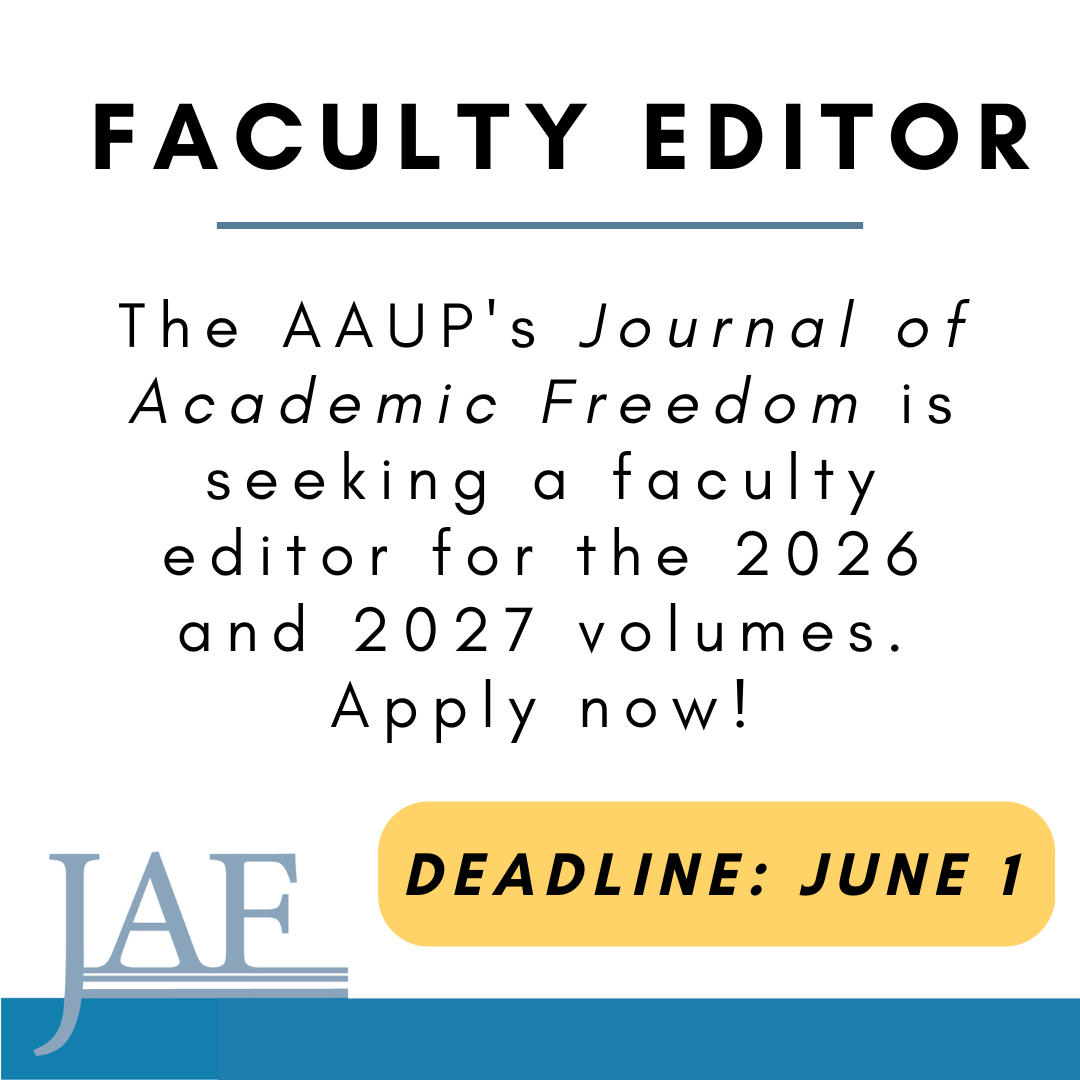- About
- Programs
- Issues
- Academic Freedom
- Political Attacks on Higher Education
- Resources on Collective Bargaining
- Shared Governance
- Campus Protests
- Faculty Compensation
- Racial Justice
- Diversity in Higher Ed
- Financial Crisis
- Privatization and OPMs
- Contingent Faculty Positions
- Tenure
- Workplace Issues
- Gender and Sexuality in Higher Ed
- Targeted Harassment
- Intellectual Property & Copyright
- Civility
- The Family and Medical Leave Act
- Pregnancy in the Academy
- Publications
- Data
- News
- Membership
- Chapters
From the Editor: Others on Campus
What makes someone “other”? What can we do about it? And who is “other”?
Few on campus have faced the same kinds of barriers as African Americans, LGBTQ individuals, and other historically oppressed groups. But many see themselves as outside of the mainstream of our college and university communities.
Students and faculty are feeling more “other” than they once did. Activists of all sorts—including union activists and even conservatives—also see themselves as marginalized.
People who teach part time or on contingent lines find it difficult to have their accomplishments recognized by campus communities—or to earn equal pay for equal work. Scholars who step outside of norms can be hounded from programs with strict sets of (often unspoken) rules for thought and behavior. People with visible disabilities are ignored on campus, and not only in relation to unmet needs for accommodation. Students with hidden needs, mental or physical differences, or family or job responsibilities that make it difficult for them to focus on school are shoved aside to speed up general progress to graduation. Some students are hiding homelessness and hunger—as are some adjunct professors. Relentless fascination with youth causes older job candidates to find themselves unable to compete with relative youngsters—and older students frequently feel shepherded into the relative ghettos of online and for-profit higher education.
And then there is the “meritocracy” of established colleges and universities: only those working within the top few institutions have secure status as scholars; work done elsewhere cannot be as worthy—or so it is often assumed.
Enough? Even this list is far from exhaustive.
How do we stop the marginalization of the “other”? How do we make inclusivity effective, not something mandated and given lip service? We can’t even seem to overcome simple political differences. How do we expect to address subtler and more complex ones?
We can begin by recognizing the “others” as legitimate partners, welcoming them as equals. This issue of Academe, my last as faculty editor, endeavors to start that process, beginning with Leslie Bary’s argument that it is up to all of us on the faculty to initiate change. Following are James Ferry’s exploration of moving from jail to the classroom, Marleen S. Barr’s account of being a woman in a male-dominated field, Stephen Kuusisto’s presentation of the experience of being a blind professor, and Suzanne A. Whitehead’s declaration that we need to alter our teaching to accommodate the lives of our students.
The four online-only articles that accompany this issue remind us of other ongoing concerns in higher education. Judy A. Van Wyk describes how the AAUP collective bargaining chapter at the University of Rhode Island prepared for the Supreme Court’s Janus ruling, Arthur G. Jago explores one of the distressing aspects of shared governance, Ognjen Miljanic writes about the financial risks of student loans, and Athena Anderson provides a look at how we’ve been turning teaching into a popularity contest through misuse of student feedback.
Thank you for a wonderful six years with Academe.




